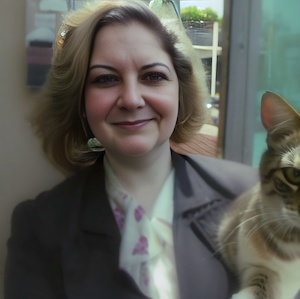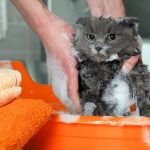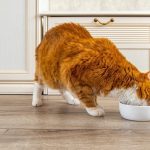Have you ever wondered if your cat can enjoy the same vegetarian treats as you? As obligate carnivores, cats require a specific diet rich in animal protein, but what about plant-based options like beans and lentils?
As Per Healhtyjournal”A combination of white beans and sweet sauce, baked beans are high in protein and fiber but not necessarily good for your feline pet.”
In this exciting blog article, we’re going to find out if “Can Cats Eat Beans” and uncover the truth about feline nutrition. Get ready to be amazed as we explore the ins and outs of this fascinating topic and discover if your furry friend can indulge in a bean-filled feast.
Join us on an adventure into the world of cat cuisine and find out if your feline friend can truly enjoy a vegetarian lifestyle.”
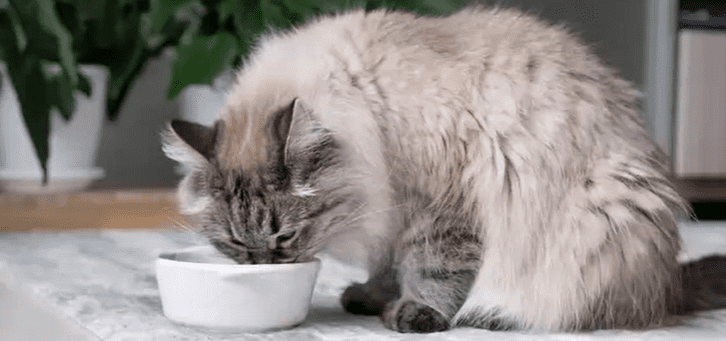
Contents
Are Cats Able to Eat Beans?
As mentioned By Healthy Journal “Yes, cats can eat beans—with caveats, which we’ll cover below. However, beans aren’t a “protein powerhouse” for cats as they are for humans.“
What kind of beans are we discussing here? Green beans? Coffee beans? Cocoa beans? Here, we will only discuss beans and legumes. You should know that green beans, coffee beans, and cocoa beans are unsuitable for cats. What about legumes, then? Are these beans suitable for cats?
As long as the beans are served plainly, cooked, and only occasionally as a snack, beans do not necessarily pose a health hazard to your cat. If you are unsure whether your cat has specific medical conditions (such as pancreatitis) that could be exacerbated by bean consumption, consult your veterinarian first.
Beans such as lentils, peas, soybeans, and peanuts belong to the bean family. Consequently, your cat may become curious about these small oval foods. If you like them, your cat may be as well.
The Benefits of Beans for Cats
Beans are a nutritional powerhouse for people and other omnivores, such as the family dog. However, your cat is an obligate carnivore, which means his digestive system was designed to eat meat…and only meat. He may occasionally eat grass, but it is not because he is obligate. This plant is a carnivore.
Cats enjoy the taste of grass. Insoluble (indigestible) fibers exist in the grass, which goes in one end and out the other. By pushing out unwanted matter such as bones, fur, dirt, hairballs, and the like, grass will help your cat to maintain a healthy diet. Otherwise, your cat will eat animal protein exclusively.
When most cats like beans, you can give them one bean once in a while as a treat. If your cat likes green beans, black beans, and pinto beans, you can share them with her. You can give her one to three beans if your cat comes running for beans.
The Risks of Giving Beans to Cats
Plain, cooked beans are the safest to share with a cat. Never feed raw beans or those that contain added salt, sweeteners, or spices, such as baked beans, canned beans, and refried beans.
Your cat’s digestive system is well suited to handle the meat as an obligate carnivore. A cat’s digestive system cannot process beans like a human’s, so you could experience tummy troubles like vomiting, gas, and diarrhea if you feed your cat beans.
Humans can benefit from beans’ nutrients and proteins, but cats cannot. Humans can benefit from beans’ nutrients and proteins, but cats cannot.
The Five Types of Beans and Cats
Beans, including baked beans, refried beans, and seasoned beans, can cause stomach upset in cats. Your cat should avoid raw beans because they contain toxins that may be harmful.
If consumed raw or cooked for an extended period, beans, particularly red kidney beans, contain lectins that can cause nausea, vomiting, diarrhea, and stomach pain. Raw beans are also capable of transmitting staph and E. coli infections. Unwashed beans may contain many bacteria and chemicals, including E. coli.
Refried Beans
There is a high probability that cats will become poisoned by garlic and onions in refried beans, which are full of seasonings and fat, primarily lard, which are poisonous to cats.
As such, if you wish to keep your cat away from refried beans, it is not recommended that you do so, as refried beans are packed with seasonings and fat. You can offer your cat a small number of refried beans if you make them from scratch and know that no additional spices have been added.
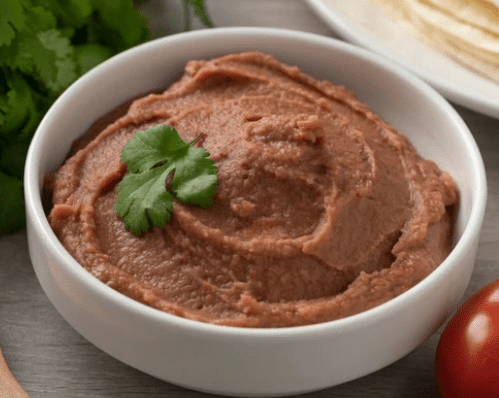
You shouldn’t give your cat refried beans from a can, as they may contain spices such as garlic and onion, which can be dangerous for him. There is a possibility that a cat’s illnesses can be greatly aggravated by ingesting garlic, onions, or other members of the allium family.
Garlic powder is a dangerous substance for cats, not only because it destroys the red blood cells in the body, but even a small amount can lead to hemolytic anemia, which has a very serious result.
Baked Beans
The baked beans normally contain several added ingredients, including onions and sweeteners, which can damage your cat’s pancreas if they contain excessive sugar and fat. As baked beans can cause pancreatitis, you should avoid giving your cat baked beans.
Baking beans containing sweeteners, specifically Xylitol, may be especially dangerous. A cat may become ill or die if they consume Xylitol. If you wish to be on the safe side, stay away from all canned beans in sauce.
Black Beans
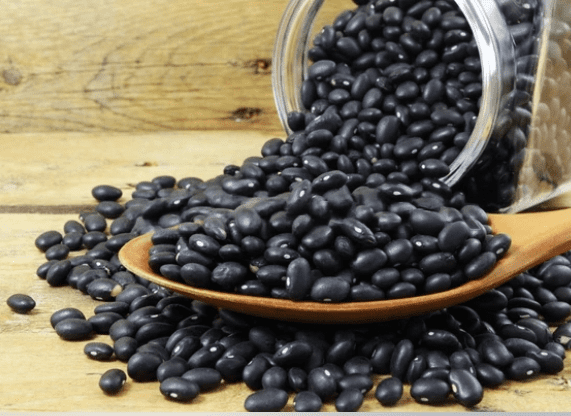
In the case of your cat eating a small amount of washed, cooked, unseasoned black beans, you will not cause any harm to your pet. However, they will not benefit them either.
It is not recommended to serve them from a can (which is not recommended), rinse them well before cooking. Even though black beans are unlikely to harm your cat, they are still not the best snack choice for your cat.
There is a recommendation that if you intend to feed black beans to your cat, they should be cooked and plain, so they have no taste or smell. The canned beans need to be rinsed before serving to remove any excess juice from the beans.
Pinto Beans
Similarly to black beans, pinto beans are not harmful to your cat in small amounts. Be sure to cook them properly, and avoid seasoning them. Plant-based protein and cholesterol-lowering fiber are two nutrients found in pinto beans that give your pet a feeling of fullness and aid digestion. Additionally, pinto beans are rich in magnesium, which helps your pet process and utilize vitamin C. Pinto beans that are unseasoned and cooked in plain water may be consumed by your pet cat.
Kidney Beans
Cooked kidney beans are acceptable for your cat as long as you clean and wash them first. As kidney beans are commonly bought in cans, you should thoroughly rinse them before cooking. Most beans are packed in salty water; you should eliminate salt from your cat’s diet.
It is not harmful for your cat to eat kidney beans in moderation in moderation, as long as they are well-washed, soaked, cooked, and served without any seasonings, garlic, onions, or any other garnishes known to be toxic to cats.
The consumption of organ meats, including kidneys, livers, hearts, etc., is a normal part of a cat’s diet since they are not toxic to them. There is no toxic component in kidney beans, so you are safe to assume that your cat will not be harmed by consuming them.
As cats are carnivores, they are not recommended to replace their natural diet with beans. Kidney beans are generally safe if they are included as part of an otherwise nutritious diet and are only consumed in small quantities.
Preparing Beans for Cats
When we eat food from the can, it may not occur to us to think about how the food can stay fresh for so long because of salt and preservatives – something we do not usually consider when we open a can of beans to eat. Ground mustard is used to preserve the grain, so it stays fresh for long periods.
Even though neither product is particularly healthy for us, your cat will not have any digestive references to either substance. If you wish to offer your cat beans as food, as with other spices, seasonings, and flavor enhancers, such as garlic or onion powder, pepper, etc., it is best to prepare them cooked and plain if you intend to let your cat eat them.
When My Cat Eats Too Much Beans?
There is the possibility that beans might be difficult to digest, but they should not cause long-term damage. However, if a cat regularly consumes beans, it may cause long-term stress on the pancreas and digestive system. If you suspect your cat has been eating a steady diet of unprocessed beans recently, please contact a veterinarian.
It is important to note that beans could adversely affect your cat’s digestive system if your cat has special dietary needs, chronic illness, or is a kitten or a senior. Should you find your special cat inundated with beans and unable to eat its diet, do not hesitate to contact a medical professional.
It is always best to be safe than sorry. Beans aren’t toxic, so your cat won’t get very sick if he eats them. He may be uncomfortable for a few days, but he’ll be fine once it’s out of his system.
Other Cat-friendly Foods
It is important to understand what foods your cat may and should not be allowed to eat, as well as what foods he or she can consume when it comes to deciding what foods to feed your cat. As per the Purina.co ”Cooked, lean meats such as beef, chicken, turkey, liver and lamb are all ok for you cat to eat.”
As with anything, knowledge is power, and most of the commonly referred to as “human” foods that are safe for cats are not recommended in large quantities. These are some other foods as well that are safe for cats to begin with.
- Eggs
- Bananas
- Bread
- Cereal
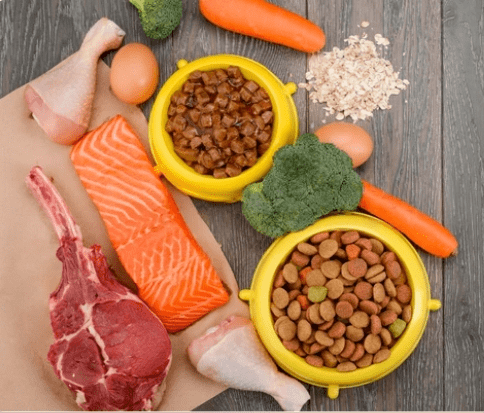
FAQs
What is the forbidden food for cats?
The most toxic foods for cats include onions and garlic, raw eggs and meat, chocolate, alcohol, grapes, and raisins. You should also ensure that your cat is not fed table scraps, especially during holidays when they may contain potentially toxic ingredients.
Can cats eat dal?
Rice prepared with lentils, such as moong dal, and boiled chicken are also good protein sources. To improve the dish’s nutritional value, garnish it with grated carrots and boiled beetroot.
What are cats allergic to?
There are four common types of allergies in the cat: insect (fleas), food allergy, atopic dermatitis (house dust, pollen, and molds), and contact. They share common physical expressions and signs in cats, and each has unique features.
What fruit is toxic to cats?
As per Frontiers ”Several foods that are perfectly suitable for human consumption can be toxic to dogs and cats.” The fruit cherries are toxic to cats and dogs, while grapes and raisins can cause kidney damage. Citrus fruits such as lemons, limes, grapefruits, and persimmons can upset their stomachs.
What are cats afraid of?
Noises in the home Many cats are afraid of loud household appliances, especially if they do not become accustomed to them as young kittens. These include vacuum cleaners, lawnmowers, printers, washing machines, and hair dryers.
Conclusion
This conclusion indicates that you should not feed beans to your cats. However, if your cat steals a bean, you don’t need to worry too much. Do not feed your cat anything in a can, raw, or seasonings. Cats can eat kidney beans, but they should not be eaten on a daily basis and should not be replaced with meat protein sources. Providing your cat with them as a replacement for meat protein sources is not appropriate either.
The problem is that, when cats consume too many beans, or beans that have not been fully cooked, they are at a higher risk of phytohemagglutinin poisoning, which can be fatal if they consume only small quantities of beans.
Charlene Pare is the founder of Cat Likes Best. She manages and strategizes the content published on this website. When she isn’t working, she enjoys exploring the city around with her Ameican Shorthair kitty–Moli. Being a technocrat and an avid cat lover, she also writes on pet tech products and some of the featured articles.

